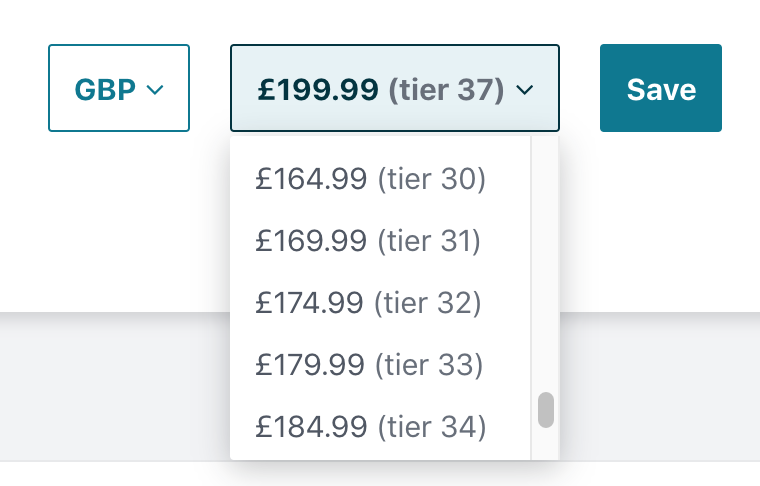
Whether you are just starting out as an online course author, or have an established library of courses, evaluating where you sell your product is an important decision. Whilst at first glance things can appear simple, there are a lot of confusing profit sharing and lock-in considerations to factor in with marketplaces, and noteworthy additional marketing and compliance challenges with self-hosting. As a result, it can be tempting to just stick with what you know - but this may be unwise in the long-term. This guide will explain all the hidden gotchas of the different options out there so that you can choose the right platform for your online course business.
This is a comprehensive overview, so it's divided into sections. It also contains frequent cat pictures for motivation.
Contents
- Part 1: Online Course Hosting Options Overview
- Part 2: Online Course Marketplace Pros and Cons
- Part 3: Self-Hosting Pros and Cons
- Part 4: Key Evaluation Criteria
Part 1: Online Course Hosting Options Overview

Broadly speaking, there are two approaches to selling an online course:
1. Sell through an existing marketplace
2. Self-Hosting
There are many online course marketplaces such as:
- Udemy
- Skillshare
- LinkedIn Learning (formerly Lynda.com)
- Learning.ly
- Packt
- Pluralsight
Some marketplaces have greater barriers to entry for course authors than others. For example Pluralsight is quite selective, whereas anyone can create a course on Udemy.
There are also two key business models for marketplaces - single purchase courses and memberships. In some cases the platform will offer both, which Udemy does through its "Udemy for Business" membership platform which is targeted more at businesses than individuals. As a course author, your sales within the single purchase model are tied to the number of students who buy your course. Within the membership model, platforms tend to payout based on the amount of time students spend viewing your course, which is quite an important distinction.
Self-hosting is much more open-ended. There are literally hundreds of potential platforms a course author can use to create, manage and host their online course, varying from those requiring quite a lot of technical knowledge and manual steps, to dedicated online course hosting platforms which take care of the technical details for you (for a price, of course).
Part 2: Online Course Marketplace Pros and Cons

An online course marketplace such as Udemy, Pluralsight or LinkedIn Learning contains a library of online courses and an existing user-base of students.
Each marketplace is different, but the tradeoffs tend to be similar.
Pros and Cons
Pros
- Students are already on the marketplace so (in theory) if you create something in demand to a high quality there is are a large number of potential buyers.
- The platform does marketing for you (which also has downsides - see cons)
- No running costs
- The platform takes care of compliance
- Most major marketplaces have an adequate feature set so that you can focus on creating your course
Cons
- Marketplaces will take a significant proportion of your revenue. Udemy takes 50% as standard.
- Marketplaces control your business model (and usually your pricing)
- Marketplaces control your customer email list
- Marketplaces tend to have big players you must contend with
- You are at the mercy of the marketplace student review system
- Potential lock-in
Key Risks
This section ignores the fundamental key risk of building a course no one wants! These are the risks are specific to choosing a marketplace as the place to sell your course.
Competition
One of the underestimated challenges of online marketplaces is the existing, established course authors. Due to the rules of supply and demand, if you have a course on a popular topic, it is highly likely that an online course marketplace will already have a handful of courses on that topic with tens of thousands of students. This can be a blessing or a curse - if the current courses are very highly rated, then it is difficult. Put yourself in the shoes of a potential student - are you going to purchase the course on the topic you are interested in which has 20000 existing students and a 4.7/5 rating, or the new course on that topic with zero students and no ratings? On the other hand, if the existing courses are either poorly rated or out of date, then this can be a great opportunity to swoop in and offer an alternative. In either case, considering your course niche and customer validation are very important preparatory steps, which we discuss in this comprehensive guide to creating and selling your online course.
Ratings Death Spiral
With course marketplaces you are very beholden to student ratings. And students are not afraid to lash out and give a one-star rating if there are issues with your course. Mistakes such as:
- Errors in exercises
- Poor lecture recording quality
- Missing key content
- Slow responses to students questions
- Stale content
Most platforms allow students to apply rating filters to their searches within the platform, so if your course dips below 4.5/5 or (heaven forbid) 4/5 then you're in trouble. This can massively reduce the number of students purchasing your course, which in turn means that you as an author will feel less incentive to fix and improve the course...which means ratings will continue to fall. This is the "ratings death spiral" which is more of a risk with a marketplace because you have no control over whether ratings are possible or not, and you tend to be focussing on larger volumes of students at a lower price point (more on this in the pricing section below).
Building the Wrong Thing for the Marketplace
If you make the decision to sell your course through a marketplace, then you will need to research your chosen marketplace carefully. One key consideration is: What is the typical length (and hence depth) of a course?
For example, Udemy courses tend to be significantly longer and more detailed than those found on Skillshare:
Typical Udemy Courses - note the length

Typical Skillshare Courses - note the length

You wouldn't want to put a 45-minute course on Udemy (unless you knew what you were doing), but that might work fine on Skillshare.
Similarly, you want to consider which student interests the platform typically caters to. For example, Udemy is has a very strong library of technical courses, whereas Skillshare's foundation is more creative skills-focused courses. This can be an opportunity to cover a topic that is missing on the platform, but you need to do your research to make sure that students will be looking for it within that site in the first place.
Sales Deep Dive & Gotchas: Udemy
Two of the key downsides to a marketplace are that you do not have control over the business model, and you have limited control over the pricing. In the case of Udemy, your lack of control over the pricing is very pronounced. Whilst it may appear that you can set your course price somewhere between $10-$200, through the mechanism Udemy refers to as the "Global Price Tier Matrix":

The reality is that Udemy runs constant discounts on courses, so that:
- Students are trained to wait for discounts
- Realistically, the max price you can sell a course for is around $20
Next: Udemy's share of your course sales. This can be divided into the following three scenarios:
- Organic Sales - Udemy takes 50%
- Sales from Your Own Marketing - Udemy takes 3%
- Sales from Paid User Acquisition Channels (i.e. Udemy's own ads) They take approximately 75% "depending on the partner or costs of advertising"
You may be wondering what "Your Own Marketing" means at point 2. This is where a student clicks on a coupon code that you market yourself. The coupon is generated via Udemy's coupon generation feature. Udemy also places restrictions on these coupons, making it mandatory for those offering a discount to expire within 1 month (this was a restriction introduced towards the end of 2019).
To complicate things further, Udemy does localized pricing, which is set according to their "Price Tier Matrix" It is not clear how regularly this is updated, and also some of the comparisons are very questionable, for example USD is prices are equated with GBP prices...which is a far cry from the actual exchange rate.
Here's a hypothetical example of how differently things can potentially work out:
- You price your course at the high end of the available tiers at $199.99
- Udemy then runs a 92% discount on top of this (this is very common) reducing the price to $15.99
Here are the potential sales scenarios:
| Sale Type | Example | You Make |
|---|---|---|
| Udemy Marketing | A student clicks on this course through a Udemy Google advert | $3.99 |
| Udemy Organic | A student finds the search through Udemy's organic search | $7.99 |
| Your Marketing | A student finds the course through a coupon link on your youtube channel | $15.50 |
And don't forget that this is taxable income :)

As these scenarios illustrate, selling your course through a marketplace is much more about volume. This can be good because you'll find out about issues with your course faster. It's also a great way to reach a lot of students quickly, which can be enormously powerful, and allow you to really have a significant impact.
But it also creates some perverse incentives - you're far less likely to want to go the extra mile answering an individual student's question because they've basically given you just a few dollars, and how much is your time worth?
Marketplace Lock-In Gotchas
Email Lists
Naturally, marketplaces are incentivized to keep your content on their platform. One of the key ways they do this is by restricting your access to student contact details. The student email list is arguably the most valuable asset a course instructor can have since a previous student is very likely to convert for future courses. However, most marketplaces restrict direct access to this list by only allowing you to contact students through their platform, and never exposing the contact details of the student. Some are stricter than others in this regard. For example, Udemy does not allow you to market any content outside of their platform in your communications with students. Violating this agreement runs the risk of your account being suspended, which can be catastrophic if you have a significant course collection exclusively on one platform.
Exclusivity Requirements
A key consideration when choosing your marketplace is whether a platform expects your content to be exclusive. Packt for example is very loose with these requirements - you can have your course on their platform and many others. Udemy operates a dual system - if you are on their "standard" author terms, you can put your course on other platforms. However, if you opt into the "Udemy for Business" option (which also has certain requirements such as the number of students and a minimum rating), then you are also agreeing to provide Udemy with the content exclusively.
From section 2.4 of the Udemy Promotions Policy
Once your course is included in the Collection, you agree that you will not begin to offer any pre-recorded courses that directly compete with or injure the sales of that course on any site or platform other than your own
This does give you the flexibility to offer your course on your own platform, but not any other marketplaces.
Crucially, if you ever want to change your mind and opt-out of Udemy for business, Udemy will not remove your course from their collection for 12 months
Support Gotchas

It's important to understand that if you choose a marketplace then success will result in dealing with a lot of student questions. For my courses (~10k students), my co-author and I probably spend around 2-4 hours per week doing support between us. Naturally the volume of such support requests depends on the clarity of your lectures and notes.
Key Benefits
Given some of the gotchas and downsides described above, what are the benefits of selling your online course through a marketplace?
Marketing
First of all, the amount of marketing you need to do compared to self-hosting is significantly less. For those course authors who do not have a following (e.g. an email list, a blog, twitter followers, a youtube channel) then the prospect of doing all the marketing is daunting. Course platforms are incentivized to show large numbers of students your courses (assuming they are well-reviewed), because they want students to make purchases and/or spend time on their platform.
It's worth highlighting, however, that in the pay-per-course marketplaces, there are significant benefits to doing at least some of your own marketing in addition to the platform. This is because you stand to make a much higher percentage of the profit when a student uses your promotional links.
Compliance
Large online course marketplaces have teams of people ensuring that things like GDPR compliance, EU VAT Tax collection and other assorted compliance considerations are handled for you. This is a serious point in favor of a marketplace because dealing with these issues can be a time-sink.
Technical Capabilities
Generally speaking, marketplaces offer a reasonable course creation experience, with an acceptable feature set. Whilst you do have to swallow the limitations on your control, you can rest assured that things like your course being easily viewable on mobile, basic SEO optimizations, and acceptable load times for you lectures are taken care of at no additional cost to you.
Part 3: Self-Hosting Pros and Cons
Generally speaking, the pros and cons of self-hosting are the opposite of those for using a marketplace:
Pros and Cons
Pros
- You retain the majority of your revenue (excluding costs which we will describe)
- You control your business model and pricing
- You (potentially) have access to a larger feature set for creating your course
- Your course is not displayed right next to a very popular existing competitor
- You are not at the mercy of the marketplace student reviews
- You control your email list and marketing and can switch vendors without notice
Cons
- You have to do all of your own marketing
- You now have running costs (more on this below)
- You have to be more vigilant with your own compliance and admin
Challenges of Self-Hosting
The Marketing Is Now On You
By far the most significant difference with going it alone is that you will get zero sales if you do not market your course. You now have to consider your marketing approach, existing audience, channels, and branding much more thoroughly than before. You will need to hustle more. The good news is that the online course author market is worth some $300 billion, so there is a lot of material out there to help you with your marketing efforts...this blog, for example :)
Running Costs of the Self-Hosted Course
Another challenge with the self-hosted route is the paradox of choice. You have so many potential ways you could get your online course in front of students - after all, we're fundamentally talking about building websites here. If you're super technical, you could probably build your own custom site to do everything, although that is likely to be a 6 month+ project when you should probably be focusing on making sales!
This leaves you with a range of options varying from piecing together a series of WordPress plugins to using a fully managed online course platform solution. Key things to consider when making your selection are:
- Can this platform host and serve my course content quickly (e.g. videos)
- Can they handle payment collection?
- Can they deal with taxes and compliance (e.g. GDPR)
- What will my course creation flow look like?
- What sort of analytics do I get to see how students are interacting with my courses?
- What kind of flexibility of business model for my courses do they offer?
If you go down the super technical route and piece together different WordPress plugins and setup hosting yourself, you're likely looking at $200 per year fixed costs, plus transaction fees from a payment collection body like Stripe. If you take the fully managed solutions, such as Kajabi or Teachable, you're looking at somewhere between $400-$2000 depending on the level of plan you need.

Obligatory Plug: Course Maker will be considerably more affordable than the existing options. Sign up here for launch updates
Benefits to Self-Hosting
Control
With the self-hosted option you can setup a membership site and move to a regular income rather than the ups and downs of the one-time purchase approach. You can run discounts as and when you want, and perhaps above all:
You have total control over your course pricing
And what's more, because you own your email list, you can directly contact your students when you want to run promotions. This allows you to do more launch campaigns which can provide a sales boost for new courses.
These are significant benefits that provide flexibility you simply cannot find on a marketplace site.
Features
Doing your own thing means you are free to add leverage features from your software of choice, which often exceed those on offer from a marketplace.
Part 4: Key Evaluation Criteria
Now that we've considered the pros and cons, as well as the hidden gotchas, how do you make a decision?
I think the following criteria are the key areas to consider:
- Do you already have any kind of following? This could be in the form of a newsletter, blog, podcast, social media following, youtube/twitch channel, or access to other influencers in a space relevant to your course.
- How ready are you to hustle?
- How much experience do you have with course creation?
- How much control do you want over your course business?
If the answer to (1) and (2) is a straight "no", then a marketplace is probably the best place to go. You can always change your mind later. If the answer to (1) is "no" but the answer to (2) is "yes" then I'd consider (3). If you're ready to hustle but have no experience with course creation then a marketplace might make sense initially whilst you're testing out a new course idea. On the other hand, for those authors with existing courses then if you want more control and are ready to do some of the marketing work then self-hosting can be a great approach, and potentially allow you to cross the chasm from "side business" to "full-time career".
Hopefully, this guide has given you a good idea about how to find the right platform for you. Good luck!
